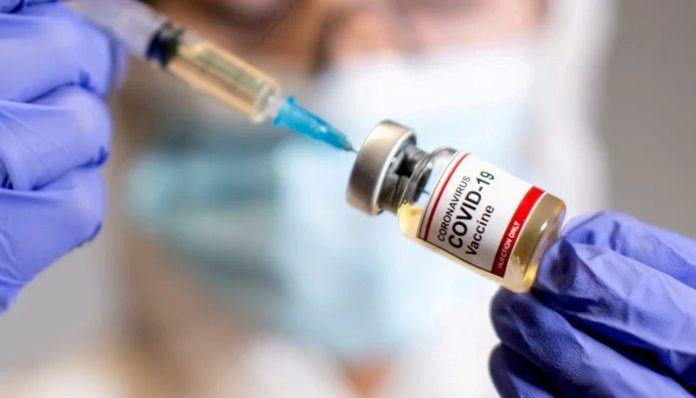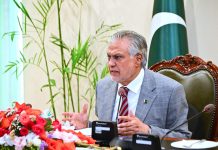ISLAMABAD, MAY 29 (DNA): Pakistan is among several countries experiencing a notable resurgence of Covid-19, with the test positivity rate reaching 17% in April 2025, one of the highest in the Eastern Mediterranean region, citing the World Health Organisation (WHO).
Although the rate eased slightly to 15% in early May, the figures still reflect a significant uptick in SARS-CoV-2 transmission, surpassing the levels recorded during the same period last year.
Surveillance data from WHO sentinel sites show that elevated virus circulation is also being observed in Egypt, Kuwait, Oman, Saudi Arabia, and the United Arab Emirates (UAE).
The country has also been flagged by the global health agency due to the limited reporting of hospitalisations, ICU admissions, and deaths, making it difficult to assess the actual burden on the healthcare system.
Amid the rising transmission, officials at Karachi’s Aga Khan University Hospital have confirmed that at least four people have died from Covid-19 over the past two weeks. All four individuals were immunocompromised and had underlying health conditions, including diabetes, cancer, or cardiovascular disease.
They were admitted with Covid-related complications and could not survive despite intensive care.
Globally, Covid-19 activity has also surged. Since mid-February, the test positivity rate has increased from 2% to 11% across 73 reporting countries, a level not observed since July 2024.
The most significant increases are being reported from the Eastern Mediterranean, South-East Asia, and Western Pacific regions.
While the African Region, Europe, and the Americas are reporting lower positivity levels, some sub-regions like the Caribbean and the Andes are beginning to show upward trends.
Wastewater surveillance data from Europe and North America currently indicate low SARS-CoV-2 activity.
WHO has also raised concerns over a new “variant under monitoring”, NB.1.8.1, which now accounts for 10.7% of global reported sequences, up from 2.5% just four weeks earlier.
The variant is a descendant of the JN.1 lineage and carries spike protein mutations associated with increased transmissibility and reduced antibody neutralisation.
While no NB.1.8.1 sequences have yet been reported from Pakistan, WHO notes that the variant is rising in all three regions with active genomic sequencing: Western Pacific, the Americas, and Europe.
Vaccination remains critical, yet uptake among high-risk groups remains low worldwide.
From January to September 2024, only 1.68% of older adults and 0.96% of healthcare workers in reporting countries received a Covid-19 vaccine dose. Higher uptake was recorded in the Americas and Europe, with significantly lower rates in low- and middle-income countries.
The WHO has urged immediate vaccination of high-risk groups, advising that any available vaccine is better than delaying immunisation while waiting for variant-updated formulations.
Since the official end of the Covid-19 Public Health Emergency of International Concern (PHEIC) in May 2023, countries have adopted varying strategies.
Some have integrated Covid-19 into existing respiratory disease control systems, while others remain in transition. However, financial constraints, workforce shortages, and competing health priorities continue to hinder long-term preparedness in many countries.
Despite fewer deaths and hospitalisations than in earlier years, the WHO still classifies the global Covid-19 risk as high. This is largely due to unpredictable variant evolution, lack of seasonality, and ongoing circulation.
The WHO emphasises that the current dominant variants, LP.8.1 and NB.1.8.1, do not appear to cause more severe disease than previous strains but warrant close monitoring.
Countries are encouraged to maintain genomic surveillance, sentinel testing, and reporting to assess disease trends and impacts.
The WHO also reminds member states that its International Health Regulations (IHR) Standing Recommendations remain valid through April 2026 and should guide national Covid-19 policies. No travel or trade restrictions are currently advised.
As part of long-term threat management, the WHO said it was supporting countries through updated strategic frameworks, technical guidance, and coordination.
These plans aim to embed Covid-19 control into broader respiratory disease preparedness efforts, ensuring that countries remain ready to manage future coronavirus threats alongside seasonal influenza and other respiratory pathogens.

















